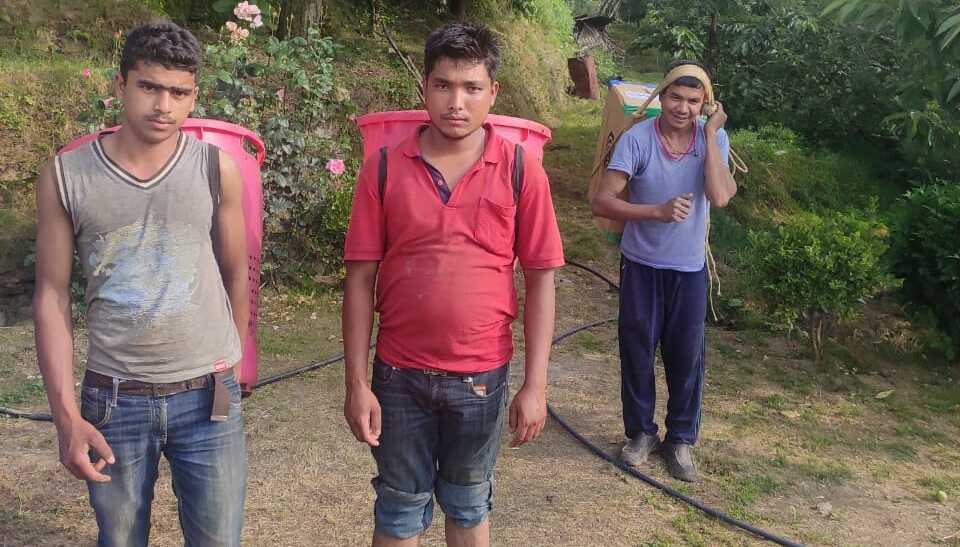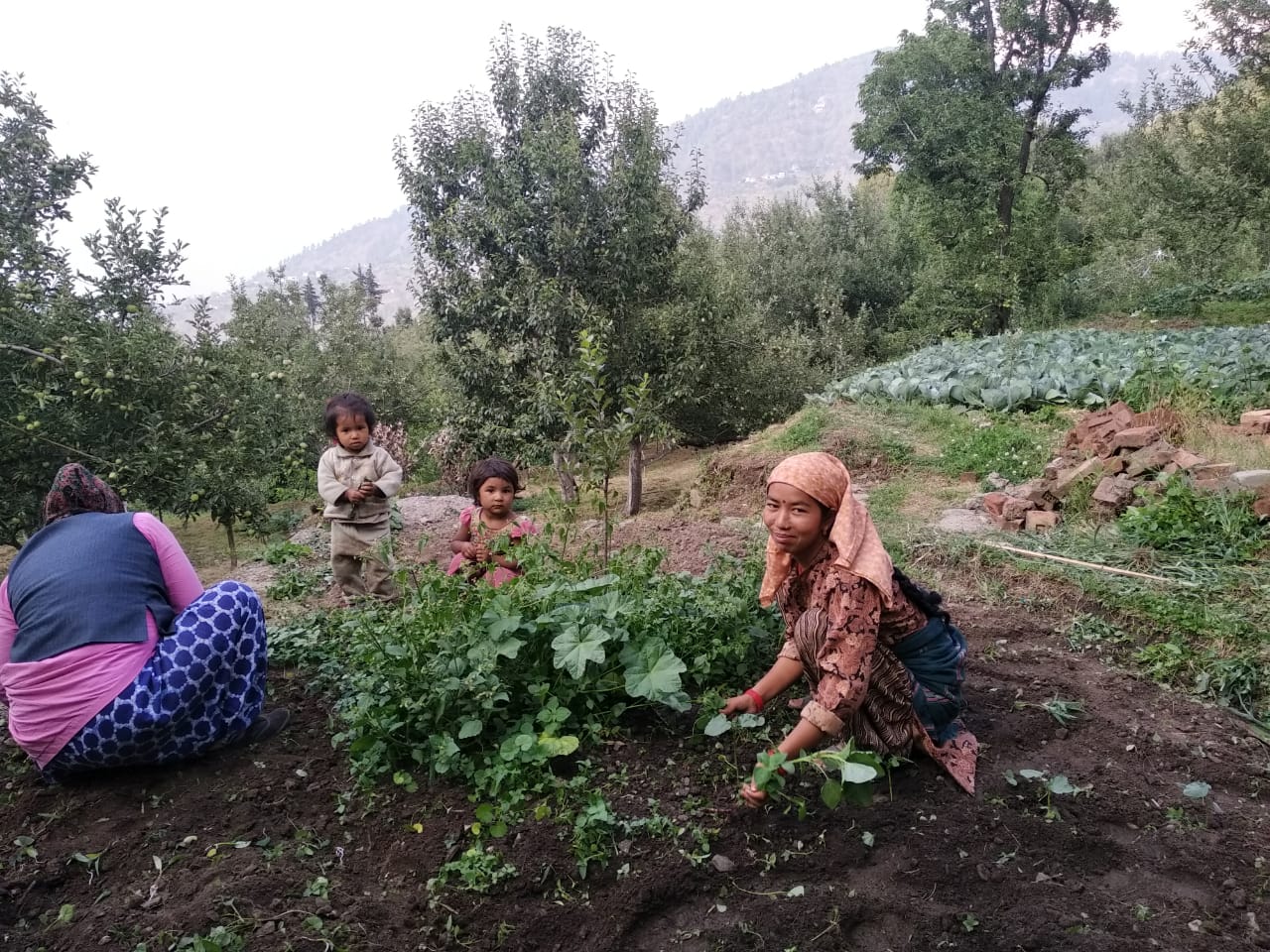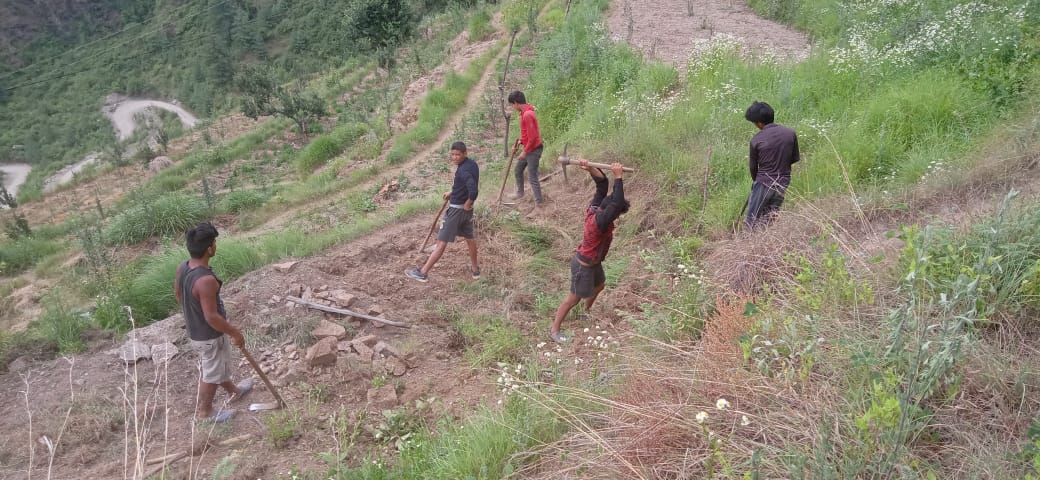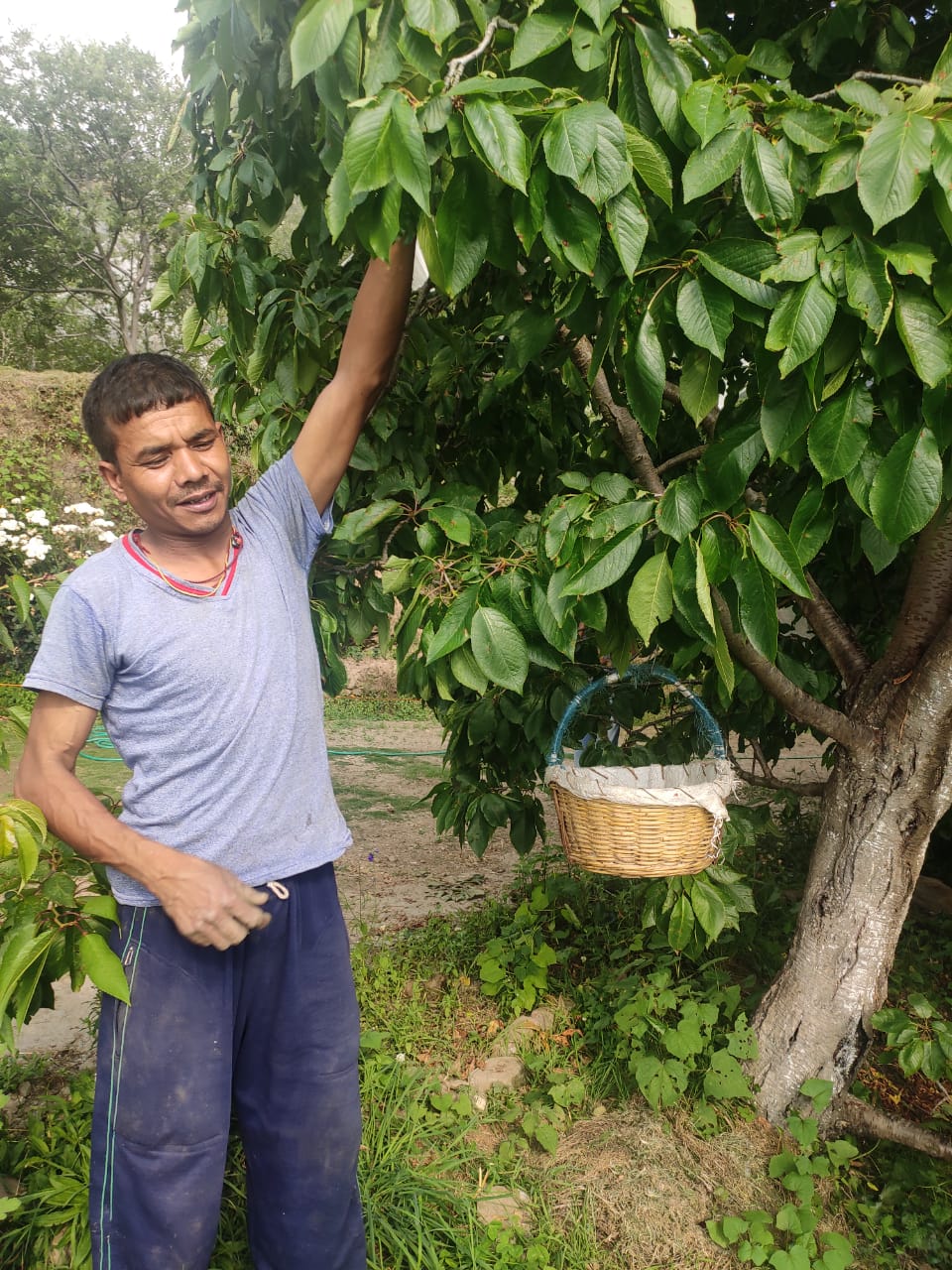Hit by the lockdown, apple orchard owners in Himachal now face labour shortage
Himachal's Rs 4,000-crore apple industry is heavily dependent on the Gurkha labourers from Nepal. But the recent tension between India and Nepal is hampering their availability.


Shimla, Himachal Pradesh
With only about a week left for the apple harvesting season in the hill state of Himachal Pradesh to commence, growers are worried due to the shortage of farm labourers, who come from the neighbouring country, Nepal.
In May-end and the first week of June, as the coronavirus disease (COVID19) lockdown was relaxed in India, several Nepalese workers from Himachal Pradesh rushed to their villages in Nepal. These labourers are the backbone of the over Rs 4,000-crore apple economy of the state that is the direct or indirect mainstay of the people in nearly six districts of the hill state. Round the year, Gurkha workers play a vital role in farm practices, right from digging pits, planting new saplings, spraying chemicals, fruit plucking, packing, and harvest transportation.
Rattan Lal Thakur, a resident of Karshaigad village in Himachal’s Kullu district, had four Nepalese labourers who wanted to go back in April. “They had informed me earlier that they would go back in April and another lot of six Nepalese workers would replace them for the apple harvest season,” Thakur told Gaon Connection. “Those four workers went away in the first week of June, but no one has come to replace them due to the restrictions in Nepal,” he added.
Like Thakur, several apple orchard owners in Himachal are worried because of the farm labour shortage in the state, and the state has projected production of more than 2.5 crore apple boxes (20 kg each).
“Those with small orchards and having different varieties may not face many issues but those with large landholding and expecting huge crop produce will surely bear the brunt,” said Adam Singh of Anni region of Kullu district where apple harvesting starts in August.
Deepak Jishtu, an apple grower from Shimla’s Kotgarh, complained this was for the first time when he had no labourers to manage his orchards. “No fresh labourers are coming in and if the situation persists, god knows how the apple crop will be harvested,” he said.

Himachal’s orchards and the Gurkha labourers
After Jammu & Kashmir, Himachal is the second-highest apple-producing state in the country. More than two-thirds of the market is captured by apples from Kashmir, while Himachal apple constitutes 20 per cent share.
Apple farming in Himachal is traditionally dependent upon the Gurkhas as they can serve in the tough hilly terrain. During the apple season, Himachal usually employs over three lakh Nepalese workers. “Last year, there were over 100 Nepalese labourers in the Kotgarh village of Shimla district alone. But now only 30 are left. Many in Nepal are waiting for the restrictions to end,” a young apple grower, Isheet Bhaik, told Gaon Connection.
A Nepalese worker earns Rs 300 to Rs 450 per day (480 to 720 Nepalese Rupee) and the rates depend on the areas as well as the facilities. The wages are on the lesser side if the landlord provides them with food or ration.
“The daily wages have almost doubled in the past ten years. In some areas of Kullu and Shimla, farmers are ready to shell out more money as wages, but some cannot as the input cost is already high in apple farming,” said KS Chauhan, a progressive grower from Shimla’s Kotkhai apple belt.
Many farmers have regular Nepalese labourers who used to come in every Apple season (June to October). But this time no new labourer has come in from Nepal and many of those working in the state have already left for their villages in Nepal.

“I got a call from my neighbour in Tribeni village in Rukum district of Nepal saying that borders with India could be sealed as the Nepalese government believes the spike in the COVID19 cases is due to people pouring in from India,” Tek Bahadur, 45, told Gaon Connection. “Also, there is a rumour in the village that relations between India and Nepal could turn bitter resulting in border closure,” he added.
Thirty-four-year-old Janak Bahadur of Rukum district, who left for Nepal from Theog of Shimla district in the first week of June, said: “My relative said that the Nepal government could cancel the citizenship of those staying in India. Several others confirmed this to me. Rest, the truth will come out when I will reach home.”
However, a Nepalese official, requesting anonymity, dismissed such rumours. “The Nepal government was deliberating on naturalised citizenship for foreign women married to Nepalese men, but some may have misunderstood it. There are no deliberations on citizenship,” he told Gaon Connection.
Most Nepalese labourers come to Himachal when there is no farm work in their villages and return here for sowing and harvesting. “We are three brothers and come to Himachal one by one along with our families,” said 22-year-old Kalpesh Saru, a Nepalese worker, who is, at present, in Nepal and could not come to Himachal due to the quarantine restrictions.
There are some other reasons for the Nepalese workers to give Himachal’s apple orchards a miss this year. Many Nepalese labourers are employed in the Nepal government’s Smart Agriculture programme, and get similar wages as they get in Himachal. “There are several government-sponsored and private developmental works going on across Nepal and locals have preferred to work there,” said Kamal Kumar, a labour contractor from the Salyan district of Nepal.
Some of the Nepalese labourers left for their village to sow rice, maize, and millet for the summer crop season (June to September) and most of them were to be replaced by the other wave of labourers from Nepal. But, due to the coronavirus scare and apprehensions that India could reinforce the lockdown, Nepal is not allowing people to leave while those who left the state for Nepal had to be under a two-week-long quarantine at certain posts like Bahraich and Rupaidiha in Uttar Pradesh.
Nepalese labourers complained they faced a lot of difficulties during the lockdown in Himachal as there was no work and they exhausted all their savings to feed their families. Hence, as soon as the travel restrictions were lifted by the Union as well as the Himachal Pradesh government, they headed back to their native villages from the apple-growing districts of Shimla, Kullu, and Mandi.

Apple harvesting woes
Nepalese have been coming to Himachal for decades in search of livelihood. But, the labour crisis has been felt over the years as Nepalese workers explored avenues in the Gulf countries, Malaysia, and Thailand. Meanwhile, progressive farmers have been diversifying their orchards. They now prefer rootstocks like M9 (a dwarfing roofs tock, which produces a tree size approximately 25-35% of the full-sized standard tree), which are small in size and require less labour assistance, informed Karan Singh Dutta, the office bearer of the Progressive Growers Association (PGA).
The state government isn’t unaware of the labour shortage. Recently, the state chief minister Jai Ram Thakur assured the state would take up the matter with the Union government to help ensure a smooth arrival of the Nepalese labourers.
Meanwhile, another state government official informed that Shimla district alone requires around one lakh Nepalese labourers, but, at present, only 30,000 are available. “Himachal usually requires around three lakh Nepalese labourers during the apple season,” he added.
The Fruit and Vegetable Growers Association president Harish Chauhan said: “Labour shortage is a serious issue. If labourers won’t come, fruits will rot on the trees.” Some farmer groups want the Himachal government to talk to the Uttar Pradesh and Bihar governments to send their workers. But these states are promoting MGNREGA (Mahatma Gandhi National Rural Employment Guarantee Act) to give work to their people. Himachal’s horticulture secretary Amitabh Awasthi said: “A meeting was chaired by the Governor to redress issues. We are working on providing solutions to the farmers.”

